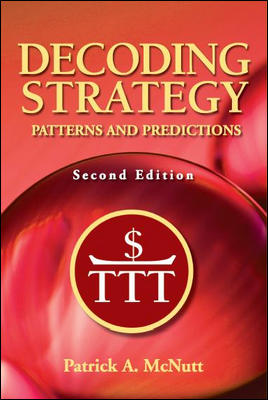MEMO
Re: Apple Inc: Play not to lose: Minimax strategy
Dear Ms Ahrendts
Congratulations on your recent appointment. We have been commenting on Apple for a number of years in this Blog, and from the perspective of game theory. You should challenge everything about the data – market share figures, consumer loyalty and the source of the competitive threat. Apple does need to refocus, to reshape its strategy in order to compete in an evolving game that exhibits both convergent technologies and rapidly changing set of consumer preferences. Are you a brand? Are you a design company or an innovator? Analysts look at Apple in terms of profit margins and a company trading on earnings estimates and revision of the estimates. With new product launches across the i-suite of products, coupled with an underlying iOS ecosystem, they look forward to new product launches, and endless queues by early adopters and loyal fans at different cities across the world. But from our perspective, observing Apple as a player in a game, we would adjudge that you are not winning the game.
Confused consumers
First of all, your product offerings are in danger of becoming nodoids: in other words, they come to represent nothing more than a roll-out across a common platform of a suite of not dissimilar products absent any innovation. Consumers are either underwhelmed or disappointed. Once they ask the nodoid question: ‘is an iPhone an iPad or is the iPad an iPhone?’ the game dynamic switches from a game of playing to win to a game of playing not to lose. This is happening. Secondly, the analysts expect the i-Watch – so what? Analysts continue to debate the next big thing. So what? Could it be IPTV or cloud solutions? So what? You know that you are not in search, you know that you are not in digital mobile advertising, you are a late entrant into cloud services, you failed to acquire Twitter, SIRI failed, Newton failed in the 1990s and in 2013 you allow us to believe that you are not a player in IPTV.
We have argued this before #tuncnunc discussing a range of game solutions to consider: launch a nano iPhone or engage in a telecom alliance with 4G LTE providers such as China Mobile. The 5C launch is about maximising profit margins; a nano offensive play, however, would ignite a $99 ‘sweet price’ competition for full functionality smartphone devices. Forward guidance on the stock estimate above $500 may adjust for these events in 2014-15 but these events may now be too late from a game perspective to play to win the long game. In other words, no longer is it about how Apple is performing in 2013, it should be about Apple’s likely performance in 2023.
Second mover advantage: SMA & Minimax
So an alternative for you to consider in your new role is to secure the second mover advantage [SMA] by playing not to lose. First, recognise that your market shares are increasing at a decreasing rate. Correct that trend. The iPhone 5 delay, for example, created a zero-sum switch to rivals, notably Samsung, in the UK and possibly across the EU. Your smartphone market share is under threat in Asia as the convergent smartphone and tablet game evolves to become Apple’s game to lose. Start thinking like your competitors – reason like this: ‘I think-you think-I-think’: Apple thinks that Samsung expects it to defend the iPhone, so Samsung will attack the iPad. But Samsung believes that Apple will reason this way, and so assuming that Apple will defend the iPad, Samsung will attack the iPhone. But Samsung also knows that Apple will reason this way.
This line of reasoning suggests that some kind of a decision tree ‘what-if’ analysis will reveal which strategy is Apple’s optimal choice. But it is more complex than that – we argue in our new book Decoding Strategy that how either player does in the game depends on what each believes the other is likely to do. Apple has to choose to play a minimax strategy, that is, a strategy that minimizes the maximum amount Samsung can expect to get in the evolving smartphone and tablet game, and thus maximize the amount Apple can expect to win. It is for you to patch a minimax strategy into your strategic vision for 2014 and beyond. To quote T.S.Eliot: ‘What we call the beginning is often the end, and to make an end is to make a beginning, the end is what we start from’. With best wishes in t+1…..







